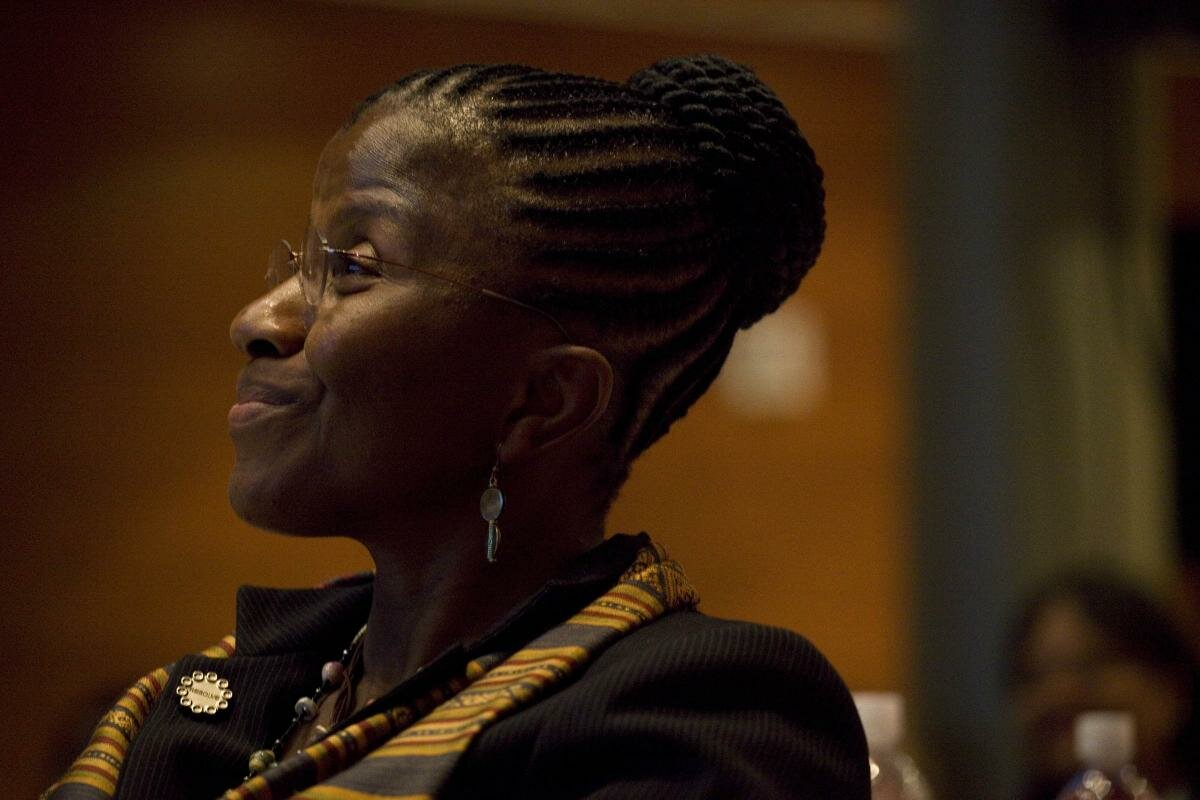Joy Phumaphi: We were not immunized
 Joy Phumaphi Photo Credit Dominic Chavez |
As originally seen at Global Post.
Joy Phumaphi began public service in Botswana as a local government auditor. From 1994 to 2003, she went on to serve in Parliament and then became Minister for Health in the midst of the country’s AIDS crisis. She later became the Assistant Director General for Family and Community Health Department at the World Health Organization and the Vice President of the Human Development Network at the World Bank. She currently is on Aspen Global Health and Development’s Global Leaders Council for Reproductive Health. Phumaphi spoke to writer John Donnelly about the key role of community health workers in introducing family planning and saving lives and the far-reaching impact of a letter from a seven-year-old boy named Kenneth.
How did you get started on issues of women’s reproductive health?
It started at the beginning. I was born in a rural village. Households in Botswana had three homes. There’s a home in the village, a home in a place where they plowed the land, and a third place where they look after their cattle. Botswana is the size of Texas and at the time when I was born it was a population of 1 million. Now we have 1.8 million. I was not born in a medical facility. I was born in the place where we did our farming. It was in October, and my grandmother was the midwife.
At that time, many women in the village were pregnant and gave born during the plowing season. Of those babies born that plowing season, only 40 percent of us survived. It was malaria season. People were far away from the village. Babies died. I always felt like I was fortunate. I was among the 40 percent who survived during that rainy season.
One early memory for me was when my younger sister Linda died. She was two years younger. She died from measles and we were not immunized. When someone dies in the family usually children are chased away. I hadn’t seen my mom for two days, and I decided to sneak in and see my mom. I was just about to turn four. I saw my sister in a coffin, a plain wooden coffin. My mother was on a mat, on the ground, weeping. That memory will never leave me.
When I started primary school, in the same village, we were not in a classroom. We were taught under a tree, writing on slates, with chalk stone. There was an outbreak of German measles, almost two years after my younger sister died. The impression we had was that in Germany there must be a lot more children dying of German measles. I remember writing a letter to these German children. We understood that measles kill, and so we wanted to send a letter to Germany for all these children who were dying.
Finish reading Phumaphi's Q&A at Global Post.
Keyword Search
MLI works with ministries of health to advance country ownership and leadership. This blog covers issues affecting the ministries and the people they serve.
Connect with Us
![]()
![]()
Categories
Blogs We Like
- Africa Can End Poverty
- Africa Governance Initiative
- Behind the Numbers
- CapacityPlus
- Center for Global Health R&D Policy Assessment
- Center for Global Development: Global Health Policy
- Center for Health Market Innovations
- Global Health
- Global Health Hub
- Global Health Impact
- The New Security Beat
- PAI Blog
- RH Reality Check
- Save the Children
- Transparency and Accountability Program
Contact Us
Please direct all inquiries to
